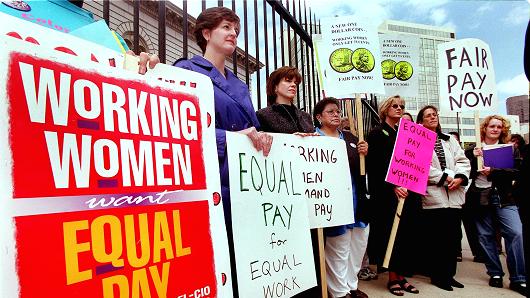Â
Over the last few decades, significant progress have been made in bridging the gap created by gender inequality. At least every democratic country’s constitution today guarantees the right of a girl child to education, that of a woman to work or practice her profession and more so, the right to participate in the political process of the nation.
We have witnessed the likes of, Funmilayo Ransome Kuti, Condoleezza Rice, Ngozi Okonjo-Iweala, Michelle Obama among others who have risen to exemplary status against the sheer prejudices of their societies towards women.
Despite this progress made around the world and particularly in Africa, recent UN report on gender equality has it that women still earn 77 cents of every dollar earned by a man with the same level of formal education, skill or experience at the work place – a staggering 23% earnings gap.
It’s also nearly not out of place to hear some business executives say things like: “we won’t employ a woman because she will be taking a lot of paid leaves for maternity or for a sick childâ€.
The report, Women at Work: Trends 2016  examined data for up to 178 countries and concluded that gender inequality persists across a wide spectrum of the global labor market.
Furthermore, the report shows that over the last two decades, significant progress made by women in education hasn’t translated into comparable improvements in their position at work.Â
At the global level, the employment gender gap has closed by only 0.6 percent since 1995, with an employment-to-population ratio of 46 per cent for women and almost 72 per cent for men as at 2015.Â
These are realities and it continually poses a challenge to women’s rights advocates to broaden their scope to address entrenched attitudes and practices in the labor market or work environment that continually obstructs the collective efforts of governments and most players in the private sector in creating a leveled playing field for both genders.
It is on this basis that many have lauded the launch of the Equal Pay Platform of Champions, an initiative that aims to stamp out global discrepancies in the wages women earn as compared to men by the UN Women in partnership with the International Labor Organization.
The Platform is part of the broader UN’s Global Equal Pay Coalition, which advocates for secure laws on equal pay, better parental leave and childcare policies as well as minimum living wages.
Â
Â
 Â
Â
Â






